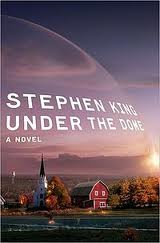One thing that’s been abundantly clear to me, as someone weaned on video games, is how indebted we are to science fiction and fantasy. Final Fantasy’s core concepts―its monsters, its ridiculous evil antagonists, its specific names―come straight from fantasy authors, and those that didn’t come secondhand from Dungeons and Dragons and other tabletop experiences.
While young me might have thought them to be video games’ core pillars, I know better now: early video games borrowed the stories of other mediums whole-cloth. Our early stories were trope-heavy takes on Lord of the Rings, Star Wars, and the like, told through the borrowed language of science fiction and fantasy.
Recently, video games have begun exerting control over other genres. Sure, it’s not a completely new thing―Neal Stephenson did write Snow Crash in 1992, after all―but we’ve seen lots of new works, in many different genres, focusing on the humble video game. We’re seeing novels like Ernest Cline’s minutae-obsessed Ready Player One, animated works like the serviceable Sword Art Online and the quite spectacular Summer Wars, and graphic works like the incredibly well-received (and sadly not followed up) first issue of Nonplayer. Even the first thing out of critics’ mouths when watching Peter Jackson’s adaptation of The Hobbit was “It looks like a video game.” While video games once followed the market, now the market follows video games.
But all of these pieces about video games have something in common: they treat the subject as exclusively big budget, big explosion, big social subjects. The video game of other mediums has us connected with each other, exploring the dangers of “the cloud” and playing games together as anonymous avatars.
And sure, some video games do that. World of Warcraft still makes more money than I can imagine every month, and it’s like these fictional games. Facebook, meanwhile, has plenty of offerings where you’re expected to bother your friends every day to get ahead; if that’s not the accurate equivalent of video games where you can apparently cause financial collapse by hacking into the system I don’t know what is.
But I’m not sure that’s the future of video games. Last year’s most successful game wasn’t similar to Ready Player One’s OASIS massively multiplayer centerpiece but rather a narrative heavy, exclusively single player adaptation of The Walking Dead. Or, if you ask me and my zombie allergy, I would lead you to Dishonored, a game as much Herman Melville as it is William Gibson: whalebone magic, insanity, a virulent plague, and more steampunk gadgetry than you could shake a stick at. Or maybe you’d go deeper, to the evocative desert-fantasy of Journey or FTL’s Star Trek simulator.
What all these games have in common is that they’re nothing like the plot device video games used in other media. What they have in common is that they’re video games becoming (perhaps remaining) a great form for otherworldly storytelling. Instead of just plot devices and works derivative of other, better things, these games stand as their own amazing stories.
Another thing: they’re insular experiences. With the exception of Journey’s anonymous multiplayer, where other players appear with names, faces, or ways to communicate, each one of these games forces you to make your own way, on your own terms. If your chaotic, nightmarish Enterprise surrogate catches fire in FTL, if the life support fails and your poor slug men are dying a cold, cruel death, you can’t message five friends on Facebook for help. Not what happens. You die. It’s your story, not your friend Bob’s. When you assassinate someone in Dishonored, real world politics don’t collapse.
It’s where video games have evolved from where they were when the authors of these other-media works were growing up: they’ve gone from being other people’s stories to being your stories. Instead of Mario falling down pits, now it’s you, trying to save a little girl from zombie hordes, or you traveling to a distant, mysterious mountain. And it’s the thing that speculative fiction got the most right about video games: they will be our stories. Video games have moved from science fiction to another medium where we can experience the best stories.










